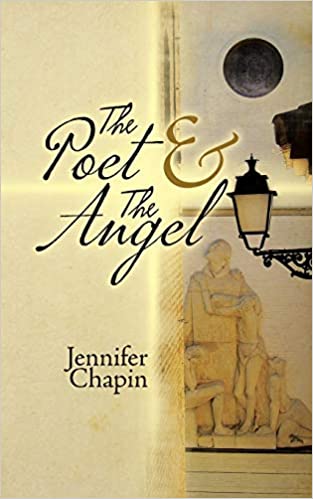Poet Frederico Garcia Lorca was executed in 1936 by the fascist Nationalists during the Spanish Civil War. In her poignant novel, THE POET AND THE ANGEL, author Jennifer Chapin allows him to speak for himself, and his voice is both a mournful lament and a righteous defense of the persecuted.
Eight-year-old Angelina is an ordinary girl living in contemporary Granada, Spain. She is wandering through the marketplace one afternoon when she happens upon a man weeping beside a fountain. That man, she soon discovers, is the ghost of a poet who died long ago. Over the course of the novel, Lorca tells much of his life story to young Angelina, providing a rich, often haunting narrative of this particular time in Spanish history. He also takes Angelina on an imaginative trip through the Arabic history of Spain, centuries before Granada was conquered by the armies of Isabella I and Ferdinand II. In a secondary plot, Angelina tells Lorca about the recent death of her sister, Cristina, and her belief that her mother holds her partly responsible for this tragedy.
Chapin’s lyrical language and talent for crafting evocative imagery consistently elevate this book beyond typical historical fantasy. For example, Angelina is introduced with a poetic description: “She twirled round and round like a spinning top, her hair an aureole of red and gold. Her skirt swirled around her in fuchsia disarray, like the petals of a flower opening its arms to the sun on a warm summer day.” While this lyrical tendency occasionally reads like purple prose, for the most part the author refrains from indulging too excessively. The novel has a simple, some might say uneventful plot, and the storyline involving the rift between Angelina and her mother is tied up a bit too neatly and perfunctorily at the end. However, the quality of the writing is so exceptional that issues of plot almost seem beside the point. The dialogue between Angelina and Lorca is interesting enough on its own without the addition of extraneous plot points.
THE POET AND THE ANGEL is a moving exploration of the life and death of Frederico Garcia Lorca that offers historical insight and cultural relevance. While the plot is spare, the author’s language is enchanting.
~Lisa Butts for IndieReader

